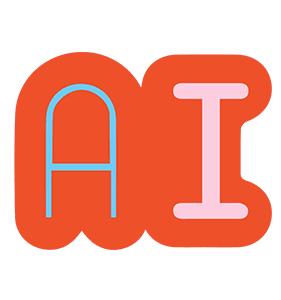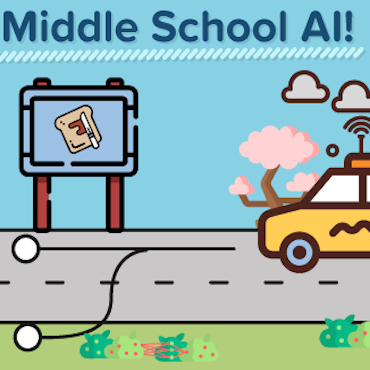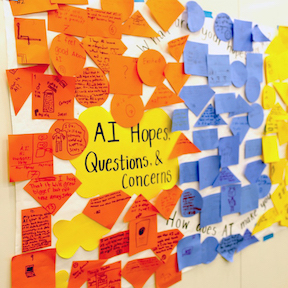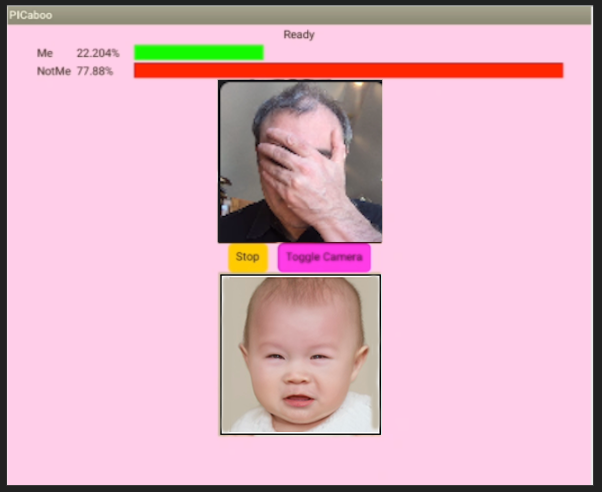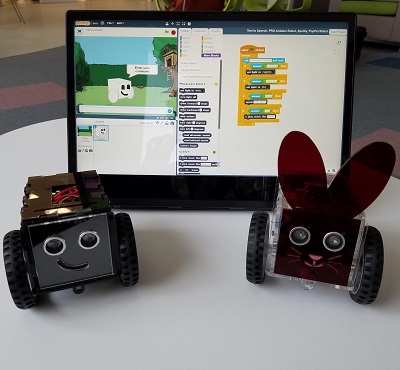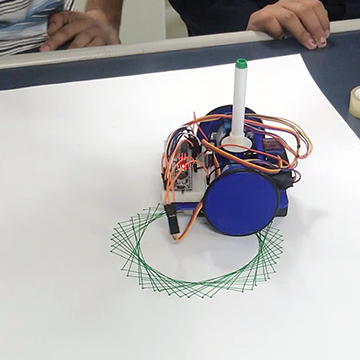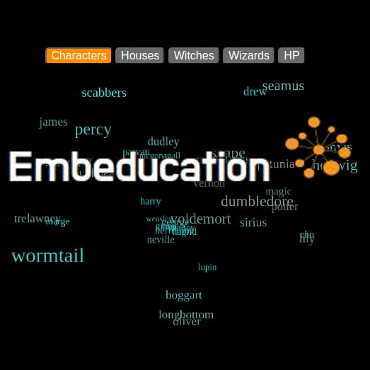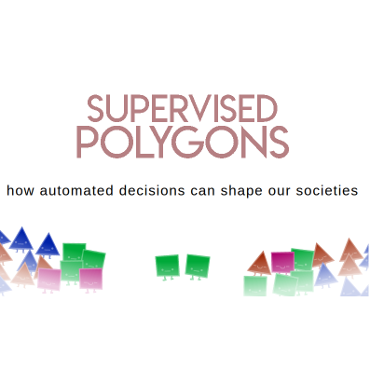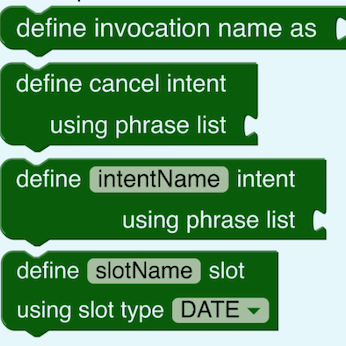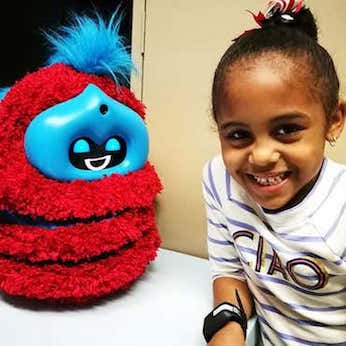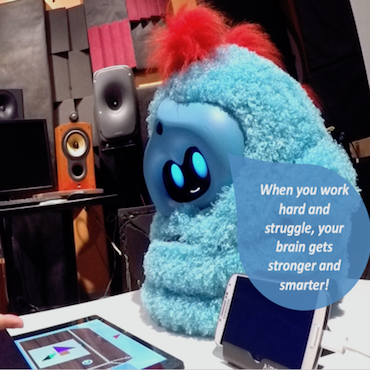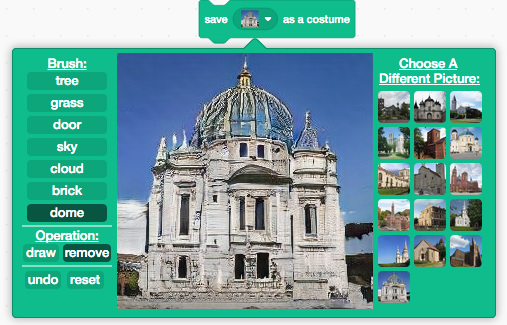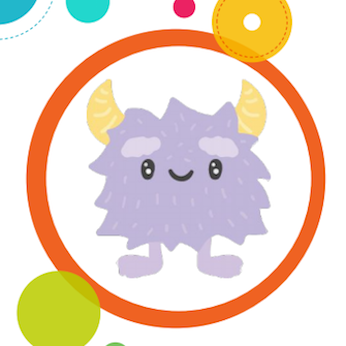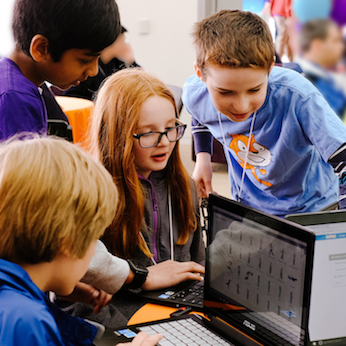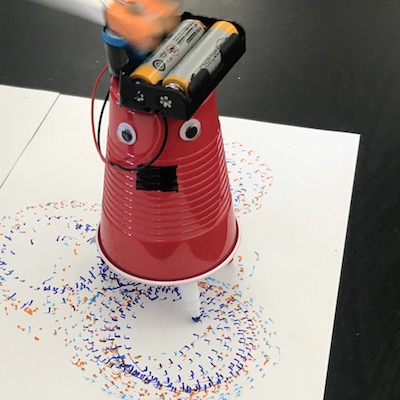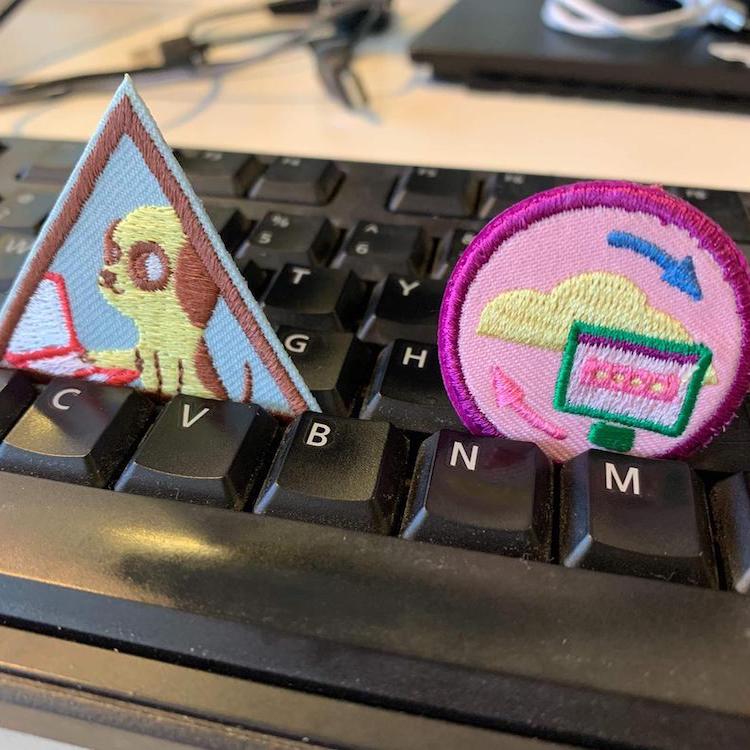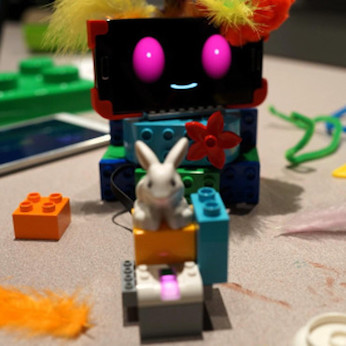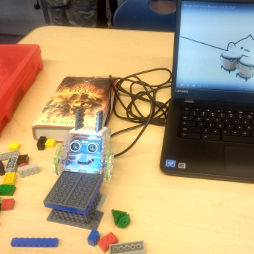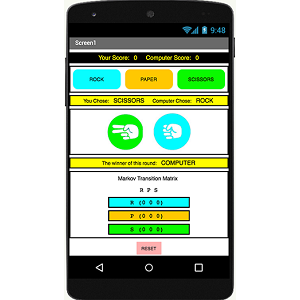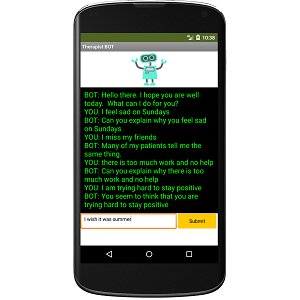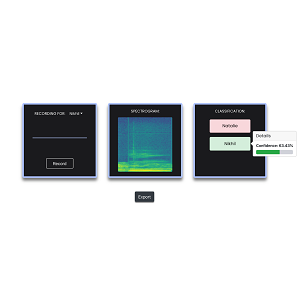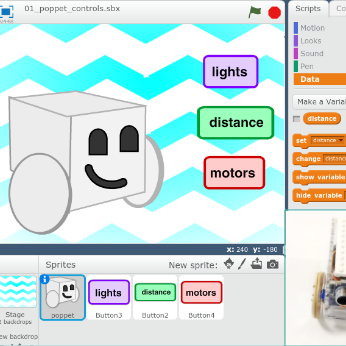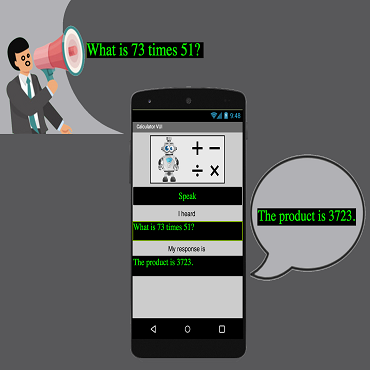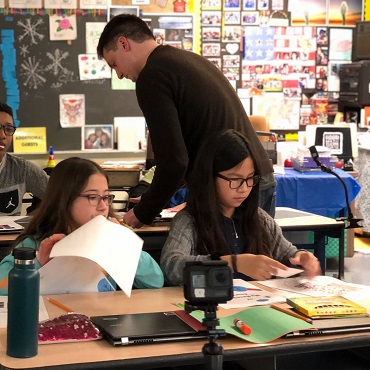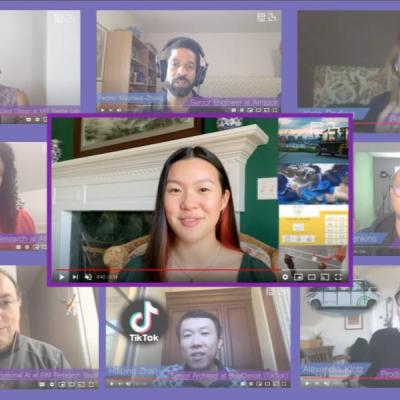Research Projects
We engage in multidisciplinary, iterative, and evidence-based research and development with diverse stakeholders to create new technologies, activities, practices and programs for real-world impact in homes, schools, afterschool programs and online communities. A list of publications for these projects can be found here.
Inclusive AI Literacy & Learning
Inclusive AI Literacy & Learning is a curriculum project that seeks to teach AI literacy while emphasizing accessibility, equity and adaptability for all.
DAILy AI Curriculum
DAILy is a middle school AI curriculum focusing on on AI concepts, ethical issues in AI, creative expression using AI, and how AI relates to your future.
AI & Ethics for Middle School
The AI & Ethics Project seeks to develop an open source curriculum for middle school students on the topic of artificial intelligence and its ethical implications.
Dancing with AI
Dancing with AI is a week-long curriculum in which middle school students get to build interactive AI projects using a series of newly developed Scratch extensions allowing for natural interaction.
Personal Image Classifier: PICaboo
Students can create and train image classification models in App Inventor.
How to Train Your Robot
Bringing AI to middle school during Massachusetts STEM Week with i2 Learning.
Doodlebot: Expressive AI
A robot kit for high school students to learn about generative AI by teaching a robot to draw.
Embeducation: Word Embeddings for Kids
Embeducation is a web app for middle schoolers that generates word embeddings and plots these in three-dimensional space to show words can be represented by features.
Supervised Polygons: AI and Fairness
Supervised Polygons helps 6-8 grade students think critically about fairness in AI models by identifying ways that bias can manifest in algorithm-based decisions and exploring user impact.
Conversational AI Tools
MIT App Inventor uses block-based coding tools to simplify mobile app development. New blocks simplify Alexa's Skill development and neural network implementation.
Learning Literacy with Social Robots
This project, supported by a National Science Foundation (NSF) grant, is designed to develop new learning games focused on improving children’s vocabulary and early literacy skills.
AI & Growth Mindset
We developed a novel cognitive-affective architecture that integrates models of curiosity, understanding of mindsets, and expressive social behaviors to advance the state-of the-art of robot companions.
Conversational AI with Zhorai
Zhorai is an artificially intelligence conversational agent through which children grades 3-5 can learn about AI.
Creativity with Scratch and AI
Scratch helps kids learn to think creatively, reason systematically, and collaborate.
Primary School AI for K-2nd Grade
Primary AI for K-2nd grade introduces early elementary school students to robotics and artificial intelligence.
AI & Data Privacy Activities
Data and privacy design activities developed for the Girl Scouts of Eastern MA.
PopBots: Early AI Education
The PopBots Platform is a tool to introduce young children to programming, robotics, and artificial intelligence by allowing them to build and program their own robots.
Primary School AI for 3-5th Grade
Primary AI for 3-5th grade introduces upper elementary school students to robotics, artificial intelligence, and design thinking.
Rock Paper Scissors Tutorial
Use Rock Paper Scissors to create a program that allows the machine to observe and learn from its user's game choices using a Markov Model!
Therapist Bot Tutorial
Can an app on your phone be your next therapist? This tutorial will show you how to make your own therapist bot app using App Inventor.
Personal Audio Classifier
This student guide/tutorial shows you how to use the Personal Audio Classifier website to train an audio model using short 1-2 second recordings.
Gizmo & ScratchX
Gizmo is a simple Arduino robot based off of the PopPet robot created by Jaidyn Edwards, and customized for our K-2, 3-5, and 6-8 grade AI curricula.
Voice Calculator
In this project you are challenged to create your very first own Voice User Interface (VUI) as you build a voice-driven calculator that can do basic arithmetic operations.
Creativity & GANs for Middle School
Teaching middle school students the practices and ethical implications of creative machine learning techniques, such as GANs and style transfer.
PRG AI Blocks
Various extensions to the Scratch programming languages allow students to build AI-enabled projects.
Awesome Dancing with AI Tutorial
Here you will learn how to use the new AI technology PoseNet to track key points of your body to create a skeletal model; develop some basic methods to quantify, measure and identify some dance moves.
Facemesh Camera Filter
Would you like to make your own facial filters? In this tutorial, we will be using facial landmark detection to create a filter camera using a new AI technology called Facemesh.
